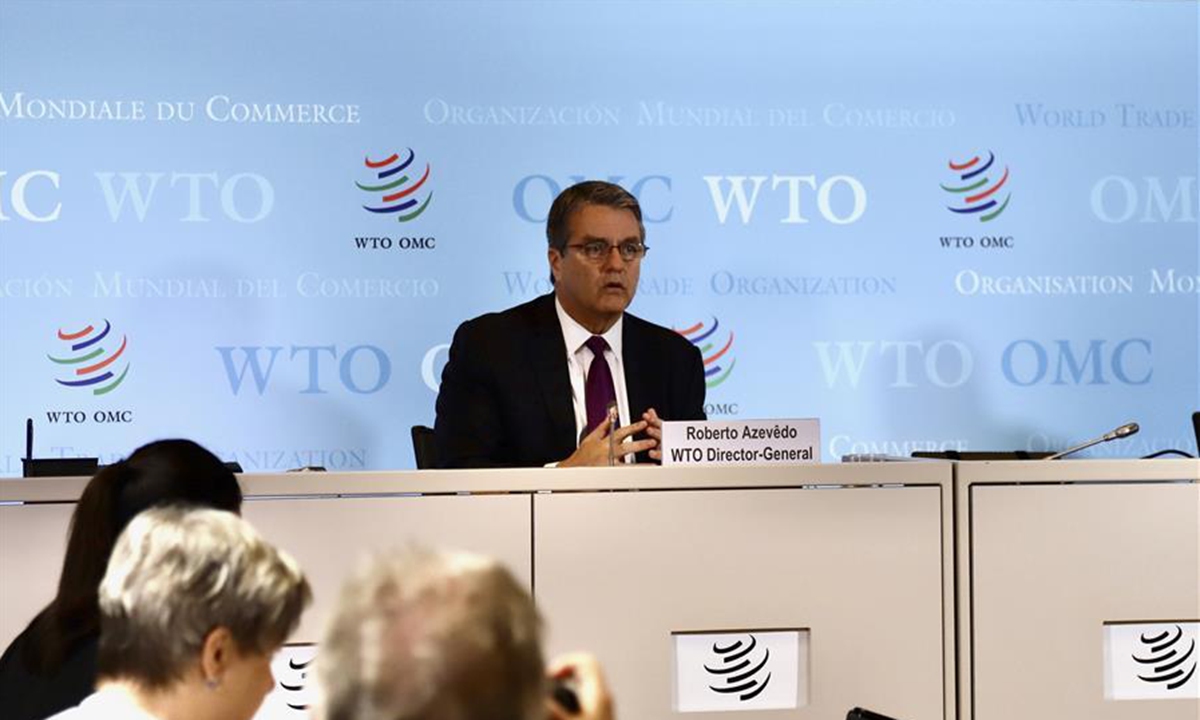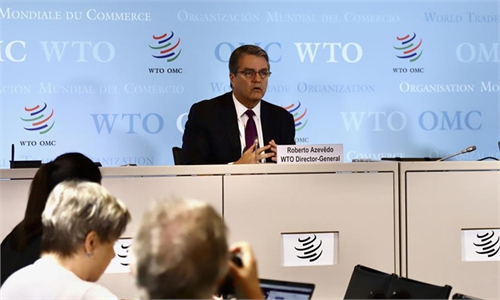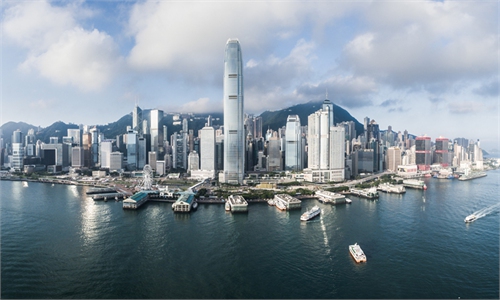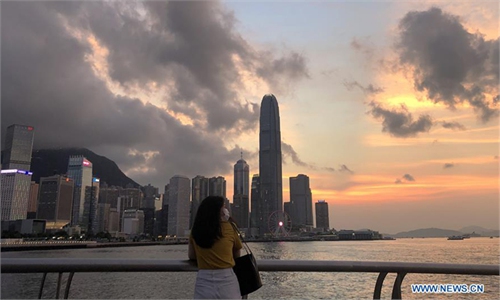
Roberto Azevêdo Photo: Xinhua
Roberto Azevêdo steps down as the director-general of WTO on Monday, Reuters reported, a year before his term is up. His departure should serve as a wake-up call for those complacent about the risks of reversing globalization, which have pushed this multilateral institution to the brink of crisis.While Azevêdo's early departure may have come as a surprise, there is no denying that he had grand plans for the institution when he took office about seven years ago. Yet, he was not ambitious enough to mediate or de-escalate the trade disputes between the world's two largest economies, which could have become his biggest achievement during his term. Of course, his achievements on issues such as the Trade Facilitation Agreement are still commendable. Those who think the director-general has got too little done over the past seven years should consider the unprecedented constraints and headwinds facing the organization.
The three pillars of the WTO - monitoring compliance within existing rules, multilateral negotiation, and dispute settlement - are all facing the challenge of growing international trade frictions and increasing unilateralism by countries like the US. Specifically, the Doha round of multilateral trade negotiations, which begun in November 2001, has stalled for years.
Meanwhile, the WTO's most successful dispute settlement was paralyzed in December 2019 after the Trump administration blocked reappointments of judges to its appellate body, which adjudicates trade disputes among member countries.
The past few years also saw how Washington undermined the WTO's authority on various issues. In August 2018, US President Donald Trump threatened to withdraw from the WTO; In November 2019, the US ratcheted up its pressure on the organization by threatening to block the WTO's biennial budget.
Moreover, globalization has taken a hit during the coronavirus pandemic in recent months, clearly putting Azevêdo in a tough spot at a time when the entire multilateral trade system is under unprecedented pressure.
A crisis for the WTO is inevitable as unilateralism continues to rise and globalization has receded. The US is to blame for setting the world on a destructive course when it comes to global trade, while other countries also need to reflect on their respective responsibilities in the multilateral system.
So far, eight candidates - from Mexico, Nigeria, Egypt, Moldova, South Korea, Kenya, Saudi Arabia, and the UK - have been nominated by their countries to run for the position of Azevêdo's successor. No matter who the next successor is, he or she will face a great deal of pressure as they tackle issues such as how to boost post-pandemic trade recovery, how to mediate trade disputes between China and the US, and fighting protectionism - all of which are high on the agenda for the next director-general.
All of these issues pose great challenges and it is impossible to count on one person to accomplish them no matter how capable he or she is. Azevêdo's resignation is a wake-up call - it is time that all member states answered it.



